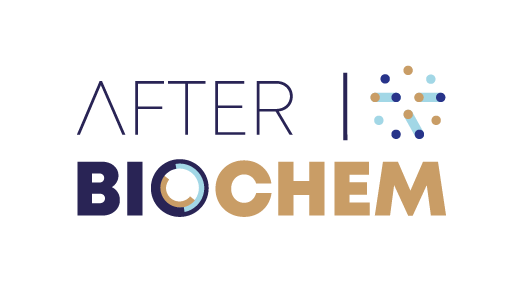Expected Impacts
AFTER-BIOCHEM paves the way the chemical industry transition to circularity and will actively contribute to the structuration of a sustainable bioeconomy value chains in Europe. Projects’ impacts are in line with the BBI JU roadmap: the SIRA, which sets out the main technological and innovation challenges to developing sustainable and competitive bio-based industries in Europe.
AFTER-BIOCHEMs’ impacts are expected to contribute also to the Sustainable Development Goals (SDGs) established by the United Nations (UN). AFTER-BIOCHEMs’ impacts report a contribution to the SDG8 « Decent work and economic growth », SDG9 « Industry, Innovation & Infrastructure », SDG12 « Responsible Consumption & Production » and finally SDG13 « Climate Action ».
To achieve that ambition, AFTER-BIOCHEM will:
Environmental impacts
| Impact | Key figures | |
|---|---|---|
 |
Reduce significantly the carbon footprint of carboxylic acids production comparing to petrochemicals carboxylic acids production. |
The carbon footprint of carboxylic acid (versus petro-based): will be divided by 5. The carbon footprint is based on an LCA performed by Sphera in 2019. It will be updated during the AFTER-BIOCHEM project. Related Sustainable Development Goals: SDG13 |
 |
Optimize resources efficiency and therefore support the EU’s Circular Economy action plan. |
Volume of industrial process waste generated: 0kg per ton of carboxylic acids produced. AFTER-BIOCHEM implements a « zero waste » strategy thanks to an optimised production process and the use of co-products in the form of fertilisers. Related Sustainable Development Goals: SDG12 |
 |
Reduce the dependence on petrochemical-based ingredients for a range of molecules. |
Reduction of the number of petrol barrel per ton of natural carboxylic acid produced. In the AFTER-BIOCHEM process, fossil-based raw materials are replaced by agricultural processing co-products. Related Sustainable Development Goals: SDG13 and 12 |
 |
Improve the economic and environmental sustainability of key European crops such as sugar beet. |
1 new outlet created. The process developed will be integrated into a standard sugar refinery. Related Sustainable Development Goals: SDG12 |
Social impacts
| Impact | Key figures | |
|---|---|---|
 |
Create local direct jobs in manufacturing & construction/engineering sectors. |
Creation of 60+ local direct jobs. Implementation of AFYREN NEOXY’s strategic recruitment plan based on:
Related Sustainable Development |
 |
Create local indirect jobs in manufacturing & construction/engineering sectors. |
Creation of up to 200 indirect jobs. Implementation of AFYREN NEOXY’s strategic recruitment plan based on:
Related Sustainable Development |
Economical impacts
| Impact | Key figures | |
|---|---|---|
 |
Create new value chains based on cross-sector interconnection. |
Creation of 6 new value chains. AFTER-BIOCHEM will turn agricultural processing co-products into a range of new bio-based consumers products categories with applications in the food and feed, fragrances and flavor, personal care, pharmaceuticals, and industrial chemicals. The process will also valorise the only process co-product into a fertiliser. Related Sustainable Development Goals: SDG9 |
 |
Produce new building blocks based on sustainable bio-based feedstocks. |
7 carboxylic acids: Acetic, propionic, valeric, isovaleric, butyric, isobutyric, caproic. At least 2 derivatives. Related Sustainable Development Goals: SDG9 |
 |
Develop innovation in organic waste recovery and recycling. |
At least 3 substrates at pilot scale will be tested. AFTER-BIOCHEM will explore the innovation potential of exploiting two other potential feedstocks (residual food waste and organic fraction of households’ waste) for a much higher added-value application than composting. Related Sustainable Development Goals: SDG12 |
